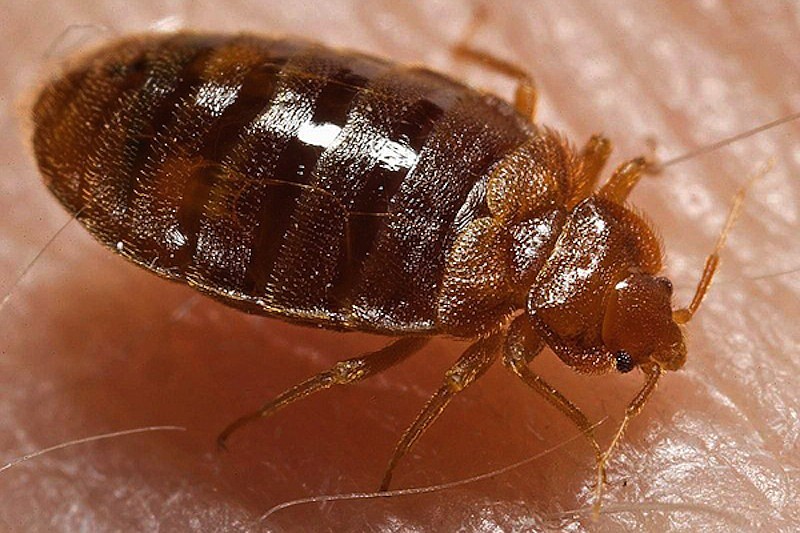Ever since humans have gathered in groups, Cimex lectularius, or bed bugs, have been causing problems for people.
Now that spring is in full swing and summer is just around the corner, it is important to watch out for these nasty little critters.
Other ‘fun’ facts about bed bugs
› Bed bugs are intelligent. Their survival instincts tell them to avoid detection during the day. They generally feed during the night, detecting their victims by sensing the carbon dioxide put off by sleeping humans.› Bed bugs administer an anticoagulant that allows them to feed on humans undetected, which means a desperate bed bug can feed on a human even while he or she is awake.› There are three main types of bed bugs: The common house bed bug, Cimex lectularius; the tropical bed bug, Cimex hemipterus; and the tropical bed bug, Cimex adjunctus. Other similar species, such as the Mexican chicken bug, prefer to feed on birds and often congregate in poultry farms.› While bed bugs prefer warmer weather, they can survive in a temperature range of 32 to 120 degrees Fahrenheit.› Bed bugs can have as many as 4,000 babies in a six-month period.› While bed bugs are often more common in densely populated urban areas, they can be found just about anywhere throughout all 50 states in the U.S.
"They're all ectothermic organisms, which means their operating body temperature increases and decreases with the weather," East Tennessee State University biology professor Karl Joplin says. "The ones that would live outside aren't as functional when it's cold, and that's why they often prefer houses."
While the warm weather presents an opportunity to visit yard sales and travel, University of Tennessee entomologist Karen Vail says these activities create a greater risk of bringing a bed bug infestation home.
And bed bugs enjoy traveling just as much as humans do.
"Bed bugs are excellent hitchhikers. They can enter homes via infested luggage, backpacks, purses, clothing and furniture. Depending on their stage of life, bed bugs can be one twenty-fifth to one-third of an inch in size, which makes them extremely difficult to spot," she says.
"A garage sale bargain can quickly become expensive if it brings bed bugs into your home," she adds.
While traveling, experts on these creepy-crawlies advise keeping luggage and suitcases away from the bed. If staying in a hotel, guests should inspect the room before unpacking to check for bed bugs along the mattress seams, headboard and other crevices.
Before leaving to head home after traveling, it's important to make sure to check your luggage, and then wash and dry clothes when returning home.
"One thing that makes them hard to get rid of is that they're very flat and can get into thin crevices and cracks. One of the most common ways to control them is a fogger, but the fogger doesn't always get into these cracks," Joplin says. "It's extremely difficult to get rid of them."
This can create problems in hotels, especially if clean sheets come into contact with infested sheets. Since bedbugs can rapidly reproduce, an infestation can quickly get out of control, going from room to room.
"They have one of the more unique ways of sexual reproduction we know of called traumatic insemination. It's when the male essentially 'pokes' the female in any place on the body and the sperm makes its way to the egg," Joplin says. "This occurs in a few other insects, but it is not very common."
Isolating these bugs isn't much help either, according to Joplin. Bed bugs can survive up to a year without food.
"They tend to have a lower metabolism," Joplin says. "When they don't have food, they can go dormant and live on the stored reserves they've accumulated."
If you do come into contact with bed bugs in the coming months, you'll need professional help to get rid of them.
"The eggs turn out to be fairly resistant to methods for control, so even if you can get rid of a current infestation, the eggs can still hatch, and you'll get another batch set up again," Joplin says.
Brandon Paykamian is a reporter for the Johnson City (Tennessee) Press.
